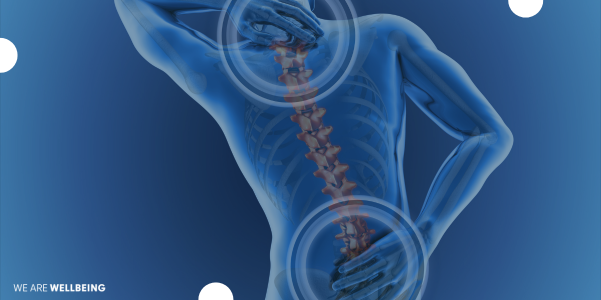April is host to Stress Awareness Month 2024, and this year’s theme is #littlebylittle. It highlights the idea that small, consistent actions can have a huge impact on reducing stress and improving overall wellbeing. To learn more about stress and the symptoms you might experience, check out some of our previous We Are Wellbeing articles.
Below we have explored 8 ways to start reducing stress, and in the theme of #littlebylittle, you don’t need to do all of these at once. We are looking to reduce stress, not increase it! Taking one or two small steps every day, even just for 5 minutes, can be significant for our mental and emotional health over time.
8 ways to reduce stress
- Build relationships and talk
Maslow’s hierarchy of needs lists love and belonging as a fundamental human need, and it is with good reason. Strong social connections, whether that is through friendship, intimacy, family or colleagues is linked to physical and mental wellbeing. Check in with your connections and make time for regular conversations.
- Daily movement
When we exercise, our body releases hormones called endorphins, which can help to reduce stress. Movement can also help us to sleep better and increase self-esteem, both of which can further reduce stress. A 5-minute walk on your lunchbreak, some gentle yoga or simply getting up from your desk more regularly can make a big difference.
- Breathing techniques
When we experience stress, our breathing tends to become faster and shallower. Calming breathing techniques can bring big benefits and can be done anywhere at any time. Just a few minutes a day is all that is needed, maybe you could try this whilst waiting for the kettle to boil? The British Heart Foundation has some simple exercises to get you started.
- Make time for self-care
Self-care often gets neglected, especially when we are busy with work, families and everything else. It’s easy to feel selfish and guilty for focusing on ourselves, but self-care can help us to manage stress and show up better in other areas of our lives. Whether it’s a bath, a hobby, exercise, or a good book, try booking it into your weekly schedule.
- Journalling
Journalling can work in a similar way to counselling, allowing you to write down and process feelings and emotions in a safe space. This has been shown to reduce stress, anxiety and depression. It might feel a bit awkward to begin with, but get yourself a new notepad, be patient and let go of any judgement. Aim for a few sentences a day and you may find that the words start flowing.
- Practice gratitude
Practicing gratitude can have a profound impact on our mindset and can help us think more positively by actively focusing on the good things in life. There are many ways to do this, but gratitude journalling is a great place to start. Try writing down 3 things every day that you are grateful for, this could be a relationship, a win at work, or just a good cup of coffee!
- Prioritise sleep
Stress can impact our ability to get a good night’s sleep, and a lack of sleep can have a knock-on affect on other areas of our wellbeing. If this is something you struggle with, think about assessing your sleep hygiene and implementing a relaxing evening routine. You could even incorporate some the previous tips, such as breathing or journalling. The Sleep Charity has some great advice to support this.
- Reduce time online
Unlimited online access has its benefits, but also many drawbacks, and can really affect our ability to switch off. It’s easy to spend hours scrolling aimlessly through social media and checking emails, but this often leads to additional pressure and unwarranted comparisons. Setting boundaries and committing to phone free time everyday can reduce stress, and free up time for other things.
CONCLUSION
To conclude, even just a few minutes a day can be transformative in reducing stress. But in order to see change, consistency really is key, so think about ways in which you can create habits and build these into your daily routine. You might want to use a habit tracking app, or try habit stacking, in which you attach an action to something you are already doing every day. For example, calming breathing in the shower, or gratitude journalling once you get into bed.
For more advice on how to build small habits, James Clear has written a helpful guide, How to Build a New Habit: This is Your Strategy Guide.







